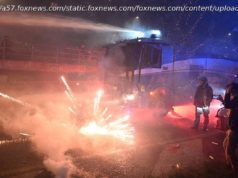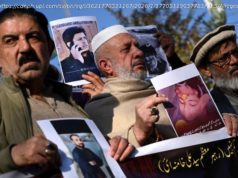The violence threatened to again force the suspension of health workers’ efforts to contain the virus, which may have killed more than 150 people since August.
JOHANNESBURG — Congolese rebels have killed 15 civilians and abducted a dozen children in an attack in the center of the latest outbreak of the deadly Ebola virus, Congo’s military said Sunday. The violence threatened to again force the suspension of efforts to contain the virus.
The Ebola outbreak in the Democratic Republic of Congo was declared on Aug. 1, and has been centered on North Kivu Province, which borders Uganda and Rwanda. On Friday, the World Health Organization said that there had been 117 confirmed Ebola deaths so far and 35 probably caused by the disease, out of more than 200 cases. It is the 10th outbreak in the country since 1976.
Efforts to combat the disease have been complicated by fighting between government forces and armed militias, and by attacks on medical workers.
“We condemn this attack,” said Tedros Adhanom Ghebreyesus, director general of the World Health Organization. “Everyone should work on achieving peace and fight Ebola.”
Rebels from the Allied Democratic Forces attacked Congolese troop positions and several neighborhoods of Beni, a city in northeastern Congo where many new Ebola cases have been reported, on Saturday and into Sunday, Capt. Mak Hazukay Mongha of the Congolese Army said. The United Nations peacekeeping mission said its troops exchanged fire with rebels in the Mayangose area of Beni.
Rebels from the group, one of several militias active in Congo’s far northeast, have killed hundreds of civilians in recent years. The group has a history of cross-border fighting with the Ugandan army, attacks on peacekeepers and massacres of civilians.
Angry over the killings, Beni residents on Sunday carried four of the bodies to the town hall, where police dispersed them with tear gas. Vehicles of aid organizations and the peacekeeping mission were pelted with stones, Radio Okapi, which is supported by the United Nations, reported.
The W. H. O. has said it is “deeply concerned” by the outbreak but that it did not yet warrant being declared a global emergency. To receive that designation, an outbreak must be “an extraordinary event” that might cross borders, requiring a coordinated response. Confirmed cases have been found near the heavily traveled border with Uganda.
Congo’s health ministry has reported “numerous aggressions” in the new outbreak against health workers, who have described hearing gunshots daily. Many are operating under the armed escort of United Nations peacekeepers or Congolese security forces, and ending work by sundown to lower the risk of attack.
Late last month, containment efforts were suspended for days in Beni after an attack left more than 20 people dead, hindering the work of finding and tracking suspected contacts of infected people. Since then, many of the new confirmed Ebola cases have been reported in Beni as the rate of new cases overall has more than doubled, alarming aid groups.
The weekend attacks in the Beni area came after two medical agents with the Congolese army were shot dead — the first time health workers had been killed by rebels in this outbreak.
It is a “dark day” for everyone fighting Ebola, Congo’s health minister, Dr. Oly Ilunga Kalenga, said late Saturday while announcing the deaths.
Mai rebels surged from the forest and opened fire on the unarmed agents with the army’s rapid intervention medical unit at an entrance to Butembo city, the health ministry said.
The daytime attack appeared premeditated, with civilians present left unharmed, the statement said. The medical agents had been placed in “dangerous zones” to assist national border health officials.
“Our agents will continue to go into the field each day to fulfill the mission entrusted to them,” the health minister said. “We will continue to take all necessary measures so that they can do their job safely.”






